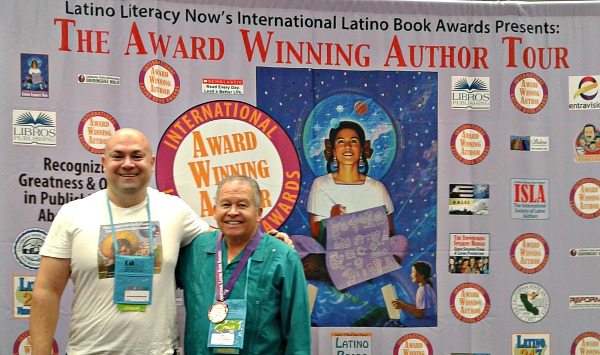The California Association for Bilingual Education (CABE) is taking place this week from March 28 – March 31 at the Sacramento Convention Center. It is imperative for Latino parents and students to participate and to be seen and heard on issues related to public education and English Learners.
Why not hear and learn from the most impacted/affected in relation to English Learner issues/policies? Teachers, students, and parents.
Many wonderful workshops, speaking panels, and discussions will take place. Quality information will be shared in relation to the latest public education laws, policies, and issues focused on bilingual education.
Parents and teachers will also have an opportunity to hear and learn more about bilingual education and best practices from colleagues who come from various school districts and charters schools from throughout California.
I, along with other authors, will be participating and signing our books in order to make Latino literature more known since the publishing industry is monopolized by billion dollar publishers that already have contracts in place with most public school districts. These contracts from large publishers impact which books get adopted and implemented.
We need to ask ourselves, is ethnic studies a reality or myth? There is a saying in Spanish that says, del dicho al hecho hay mucho trecho, which simply means that there is a wide gap between promises and reality.
Therefore, parents and students should begin to ask:
Does my public school include books from Latina/o authors or do the books that students read have characters that are diverse?
Do I, as a teacher, student, or parent have a say about which books get adopted and implemented in the curriculum?
What role should the School Site Council and teachers play in regards to book adoption?
How are Title I funds being disbursed and spent at my school?
As an English Language Learner student, have I ever read a book that includes and talks about the Latina/o culture and history?
Do students know who Maria Moreno was? According to COLORLINES, “Before Cesar Chavez and Dolores Huerta, there was Maria Moreno, a union organizer whose story all but disappeared from history until the discovery of lost photographs taken more than 50 years ago by George Ballis, one of the leading photographers of the farmworker movement. It was a discovery that sparked the search for a woman that time had forgotten.”
If you have questions or would like to further discuss the above questions/topics, please come meet some wonderful Latina/o authors at the Latino Literacy Now booths 721, 723, and 725.
I will be signing my new illustrated, bilingual book, The Adventures of El Cipitio: Las aventuras del Cipitio. I am particularly proud of this book since the main purpose is to inspire, motivate, and create a sense of identity for our English Language Learners and recent arrival students from Mexico and Central American.
Central American students usually feel left out and out of place when they arrive into our public schools, especially since they do not speak English. To make matters even tougher, bilingual, Central American books are almost non-existent in our traditional and charter schools.
Therefore, CABE and Latino Literacy Now offers an opportunity to begin to improve and remediate the scarcity of Latino, bilingual books within our public schools. It’s a step in the right direction.
Thank you to CABE for organizing and implementing such a wonderful conference that tremendously benefits educators and English Learners!
To obtain more information/details in regards to the CABE conference, please visit
Randy Jurado Ertll
Latest posts by Randy Jurado Ertll (see all)
- La Batalla del Libro de Estudios Étnicos: Segunda Parte - April 6, 2021
- La Batalla de Libros de Estudios Étnicos: Primera Parte - April 1, 2021
- The Ethnic Studies Book Battle: Part Two - March 30, 2021
- The Ethnic Studies Book Battle: Part One - March 24, 2021
- Es Hora Que los Padres, Estudiantes y Maestros Sustitutos Creen Sus Propios Sindicatos Laborales - February 25, 2019

